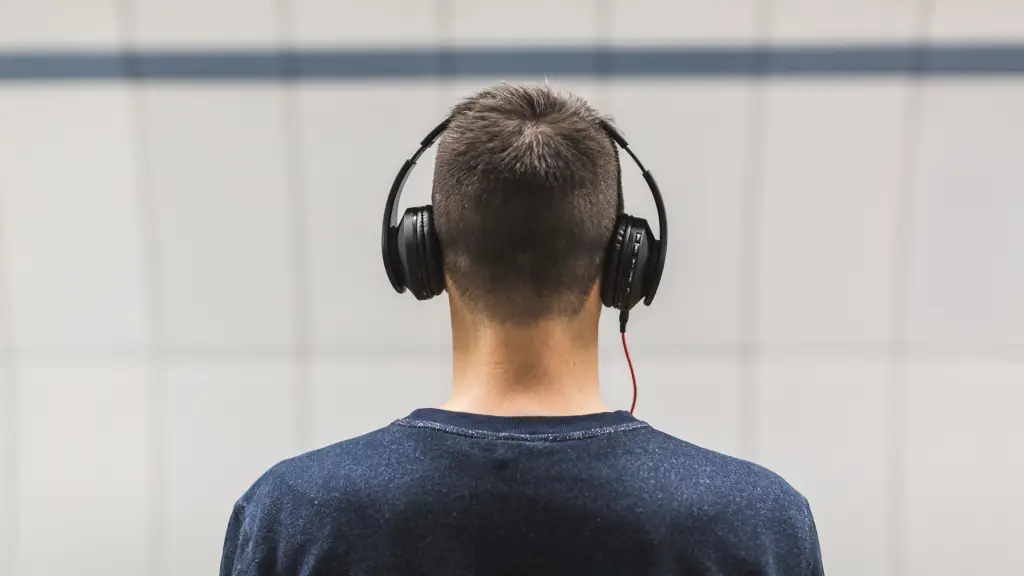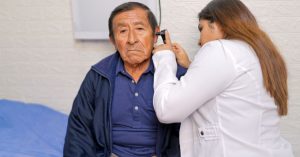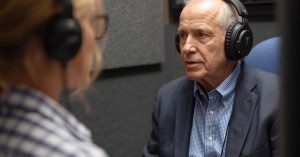If you’ve ever felt your ears pop during takeoff or landing, you’re not alone. Airplane cabins are pressurized, but not to sea level—meaning your body, and especially your ears, must adjust to rapid altitude changes. While these effects are usually temporary, many travelers wonder: can flying affect your hearing long term?
It’s a valid question—especially for frequent flyers, older adults, or those already experiencing hearing difficulties. Ear discomfort, muffled hearing, or even ringing in the ears after a flight may seem minor at first, but could repeated exposure to these conditions cause lasting damage?
In this article, we’ll explore how air travel affects your hearing, what happens inside your ears at 35,000 feet, and who’s most at risk for complications. We’ll also examine whether frequent flying can contribute to long-term hearing loss, and share practical tips to protect your ears before, during, and after your flight.
So whether you’re a seasoned traveler or just planning your next getaway, understanding how flying impacts your ears is the first step in protecting your hearing health for the long haul.
What Happens to Your Ears During a Flight?
Flying affects your ears because of the way air pressure changes at high altitudes. As a plane climbs or descends, the air pressure inside the cabin drops or rises rapidly. Your ears, particularly the middle ear, are sensitive to these changes. If the pressure inside your ear doesn’t equalize with the cabin pressure, it can lead to discomfort or even pain.
The key player here is the eustachian tube, a small passage connecting your middle ear to the back of your throat. Its job is to balance pressure on both sides of your eardrum. When working correctly, you might feel a pop during takeoff or landing—that’s the tube opening to equalize pressure. However, if it’s blocked due to a cold, allergies, or even slight inflammation, pressure can build up and cause a condition known as ear barotrauma.
Barotrauma can result in:
- Ear pain or fullness
- Muffled hearing
- Tinnitus (ringing in the ears)
- Dizziness or balance issues
Most people recover quickly once the plane levels out or lands. However, repeated or intense pressure changes can strain the structures of the middle and inner ear—especially in those who fly frequently or already have ear problems.
Cabin noise is another concern. Sound levels inside an airplane cabin can range between 85 and 105 decibels, particularly during takeoff and landing. Prolonged exposure to this level of noise, especially without ear protection, can also affect hearing over time.
While most travelers experience only mild, short-lived discomfort, the cumulative effects of barotrauma and cabin noise could pose a greater risk—especially for those who fly often. In the next section, we’ll take a closer look at the short-term effects of flying on your hearing and when they might indicate something more serious.
Short-Term Effects: Temporary Discomfort or Something More?
For most travelers, ear-related issues during a flight are temporary. You might notice muffled hearing, a sensation of fullness, or even mild ringing in the ears—especially during descent. These symptoms typically resolve within a few hours, or at most a couple of days. But what happens when they don’t?
Short-term hearing symptoms after flying are generally caused by temporary pressure imbalances or minor inflammation in the eustachian tubes. Common short-term issues include:
- Ear barotrauma: Mild cases cause discomfort or popping, but more severe barotrauma can lead to sharp pain, fluid buildup, or temporary hearing loss.
- Tinnitus: A high-pitched ringing or buzzing sound in one or both ears, which may last for hours or days after a flight.
- Vertigo or dizziness: Pressure changes in the inner ear can affect your balance, leading to feelings of unsteadiness or nausea.
While these effects are typically short-lived, they can be more intense or prolonged in certain individuals—especially if you were already congested, fatigued, or dehydrated during the flight. In rare cases, barotrauma can cause eardrum damage or fluid leakage, both of which require medical treatment.
What’s important to note is that frequent recurrence of these symptoms could signal a deeper issue. If your ears regularly take days to recover after flying, or if your hearing seems to be declining over time, it may not be “just pressure”—your ears might be reacting to accumulated stress.
The key takeaway? Persistent or worsening symptoms after flights should not be ignored. They might indicate chronic eustachian tube dysfunction, undiagnosed ear conditions, or damage from repeated exposure to cabin noise or pressure shifts. A hearing specialist or ENT (ear, nose, and throat) doctor can help determine if there’s an underlying issue that needs attention.
In the next section, we’ll look at whether these recurring short-term problems can build up into long-term hearing damage—especially in those who fly frequently.
Can Frequent Flying Lead to Long-Term Hearing Damage?
While occasional air travel is unlikely to cause permanent harm, frequent flyers—such as business travelers, pilots, and flight attendants—may face increased risks of long-term hearing issues. These risks stem from repeated exposure to both pressure changes and sustained noise levels during flights.
Cumulative Barotrauma
Each time a plane ascends or descends, the pressure inside your ears must adjust. For people who fly frequently, this constant stress on the eustachian tubes and middle ear can result in chronic inflammation or eustachian tube dysfunction. Over time, this may contribute to:
- Persistent hearing loss
- Recurring tinnitus
- A sensation of clogged ears
- Increased susceptibility to middle ear infections
In rare cases, especially when flying with a severe cold or sinus infection, barotrauma can lead to eardrum perforation. While the eardrum can often heal on its own, repeated damage can reduce its flexibility and affect sound transmission.
Noise-Induced Hearing Loss (NIHL)
Airplane cabins, particularly during takeoff and landing, can expose passengers to noise levels of 85–105 dB. Prolonged or repeated exposure to sounds above 85 dB—especially without hearing protection—has been linked to gradual, irreversible hearing loss. Frequent flyers sitting near engines or who fly in older aircraft without modern sound dampening may be especially vulnerable.
Flight attendants and pilots are aware of this risk and often undergo regular hearing assessments. But for frequent passengers, the danger is often underestimated. Unlike a one-time concert or loud event, the repeated nature of flying makes this a more significant concern over the long term.
Preexisting Conditions and Vulnerability
Those with existing hearing loss or ear sensitivity may notice that frequent flying accelerates their symptoms. Flying may also amplify symptoms of Ménière’s disease, autoimmune inner ear disease, or other inner ear disorders.
In short, while flying itself isn’t inherently dangerous to your hearing, repeated exposure without protective measures can increase your risk of long-term damage, especially if you already have underlying ear conditions. Fortunately, many of these risks are manageable with the right precautions—something we’ll explore in upcoming sections.
Who Is Most at Risk: Children, Older Adults, and Those With Ear Conditions
Not everyone experiences the same level of ear discomfort or risk when flying. Certain populations are far more vulnerable to hearing issues or complications due to the unique structure and function of their ears—or preexisting health concerns. Knowing who’s most at risk can help travelers and caregivers take proactive steps to protect ear health before, during, and after flights.
Children and Infants
Children, especially infants and toddlers, are more prone to ear pain and pressure during flights because their eustachian tubes are shorter and narrower than those of adults. These tubes can more easily become blocked, making it difficult for pressure to equalize. Since children may not understand how to relieve the pressure by yawning, swallowing, or chewing gum, they’re at higher risk for:
- Acute ear pain
- Ear infections following flights
- Longer recovery from ear barotrauma
Parents can help by encouraging children to drink fluids or suck on a pacifier or bottle during takeoff and landing to facilitate pressure equalization.
Older Adults
As we age, our bodies become less efficient at adapting to changes in pressure. Stiffening of the eustachian tubes, reduced elasticity in ear tissues, and preexisting age-related hearing loss (presbycusis) can all contribute to increased sensitivity during air travel. Older adults may also be on medications that dry out mucus membranes or impact fluid balance, which can further impair the ear’s ability to function optimally.
People With Sinus or Ear Infections
Flying with a cold, allergies, or a sinus infection significantly raises the risk of ear barotrauma. Blocked nasal passages or swelling around the eustachian tubes can prevent pressure from equalizing, which not only causes pain but can also lead to prolonged hearing changes or even eardrum rupture in severe cases.
Individuals With Existing Hearing Conditions
People with tinnitus, Ménière’s disease, or eustachian tube dysfunction may notice that their symptoms flare up after flying. The combination of pressure shifts and cabin noise can be a trigger for increased ringing, dizziness, or balance problems. These individuals should consult with their audiologist or ENT specialist before flying to discuss preventative strategies.
Frequent Flyers and Airline Staff
As noted earlier, those who fly often are exposed to repeated pressure changes and high-decibel environments. Over time, this chronic exposure may contribute to subtle but cumulative hearing damage—especially if ear protection isn’t used regularly.
Protecting Your Ears While Flying: Prevention Tips
Whether you fly once a year or every month, protecting your hearing should be a priority—especially if you’ve experienced discomfort or symptoms in the past. Fortunately, there are simple and effective ways to minimize pressure-related ear issues and reduce long-term risks during air travel.
Use Pressure-Regulating Earplugs
Specialized earplugs designed for flying (often labeled “flight earplugs” or “earplanes”) help regulate the pressure entering your ear canal during ascent and descent. They slow the rate of pressure change, giving your ears more time to adjust. These are especially helpful for frequent flyers or individuals with known sensitivity.
Swallow, Yawn, or Chew During Takeoff and Landing
These actions activate your eustachian tubes, helping them open and equalize pressure. For children, sucking on a bottle, pacifier, or lollipop during takeoff and descent can provide the same relief.
Stay Hydrated
Cabin air is extremely dry, which can lead to dehydration and thicker mucus in your nasal passages, making it harder for your ears to clear. Drinking water regularly during your flight helps maintain moisture levels and supports overall ear health.
Avoid Flying with a Cold or Congestion
If possible, reschedule your flight if you’re experiencing a sinus infection, heavy cold, or allergy flare-up. If flying is unavoidable, using a nasal decongestant spray (under the guidance of your doctor) before takeoff and landing can help keep your eustachian tubes open.
Use Noise-Canceling Headphones
To protect against cabin noise, especially during long-haul flights, invest in a pair of high-quality noise-canceling headphones. These reduce the need to turn up music or in-flight entertainment and help minimize cumulative exposure to high decibel levels.
Practice the Valsalva Maneuver (With Caution)
This involves gently blowing while pinching your nose and keeping your mouth closed—essentially “pushing” air into your eustachian tubes. It can be helpful during descent but should be done gently to avoid inner ear damage. Consult a healthcare provider if you’re unsure whether this technique is appropriate for you.
See a Specialist If You Experience Recurring Symptoms
If you frequently experience ear pain, muffled hearing, or ringing after flying, it’s a good idea to see an ENT specialist or audiologist. They can evaluate for chronic eustachian tube dysfunction, assess hearing changes, and recommend custom strategies or hearing protection options.
Conclusion
Flying is a modern convenience that allows us to connect with the world, but it’s not without its physical toll—especially on our ears. While most people experience only temporary discomfort from pressure changes or cabin noise, there is growing awareness that frequent flying and preexisting ear conditions can increase the risk of long-term hearing effects.
The good news? These risks are largely preventable. Understanding how your ears respond to altitude changes, recognizing when symptoms go beyond the norm, and taking practical steps—like using flight earplugs or staying hydrated—can all contribute to maintaining your hearing health over time.
If you’re someone who flies regularly, or if you care for an older adult or child with sensitive ears, proactive hearing care is key. Pay attention to recurring symptoms, use protective gear when needed, and don’t hesitate to consult a hearing professional if something doesn’t feel right.
So, can flying affect your hearing long term? In certain situations, yes—but with the right awareness and protection, you can continue to explore the skies without sacrificing your hearing health.
FAQ
Can flying cause permanent hearing loss?
For most people, flying does not cause permanent hearing loss. However, repeated exposure to loud cabin noise and frequent barotrauma—especially without protection—can contribute to long-term issues, particularly in those with preexisting conditions or eustachian tube dysfunction.
Why do my ears hurt or pop during flights?
Ear popping or pain is caused by rapid changes in cabin pressure during takeoff and landing. The eustachian tubes work to equalize this pressure, but if they’re blocked or slow to react, it can result in discomfort or temporary hearing changes.
How can I protect my ears when flying?
Use pressure-regulating earplugs, stay hydrated, chew gum or swallow during ascent and descent, and avoid flying with congestion. Noise-canceling headphones can also protect against loud cabin noise.
Is it safe to fly with an ear infection?
Flying with an ear or sinus infection can increase your risk of barotrauma and discomfort. If you must fly, consult a doctor about using decongestants or other supportive treatments to minimize risk.
Should I see a doctor after a flight if my hearing feels off?
Yes. If your hearing doesn’t return to normal within a day or two after flying—or if you experience persistent ringing, pain, or dizziness—it’s best to consult an ENT or audiologist to rule out underlying issues.
This article is for informational purposes only and is not a substitute for professional medical advice, diagnosis, or treatment. If you are concerned about your hearing or ear health, please consult a qualified healthcare provider.





